| |

|
DeLoG NEWSLETTER
No. 61 – 09/2022
|
|

|
| |
|
|
| |
Dear Reader,
welcome to issue No. 61 of the DeLoG Newsletter which showcases the Network’s and its members and partners most recent activities and offers an overview of current news stories, upcoming events, and courses. In addition, it provides you with a carefully curated selection of recent publications categorised along DeLoG’s core topics.
In this issue we celebrate new beginnings and reflections on the past, focusing on a more inclusive, diverse, and sustainable DeLoG Network in the future. We especially would like to highlight the new free FCM course on Gender-Responsive Budgeting for Local Governments as well as the new courses from The Hauge Academy.
This year’s High-Level Political Forum (HLPF) focused on #BuildingBackBetter. “Our world is in deep trouble—and so too are the Sustainable Development Goals,” UN Secretary-General António Guterres said, setting the tone for the HLPF 2022 which focused on reviewing the implementations of the 2030 Agenda for Sustainable Development at a time of an ongoing global pandemic, geopolitical tensions, and open conflicts, as well as climate change. You can find a summary of what was discussed at the HLPF with regards to decentralisation and local governance on our website.
We hope you enjoy this issue and encourage you to forward our Newsletter to others interested in staying updated on Decentralisation and Local Governance.
All the Best and stay healthy!
Your DeLoG Team
Contact: [email protected]
|
|
|
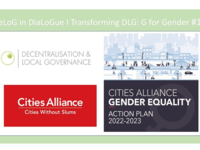
© 2022 DeLoG
|
|
DeLoG in DiaLoGue on Cities that work for women, work for everyone
On Tuesday, May 10th, DeLoG Members and Partners came together to discuss with Cities Alliance what it means for development organisations to mainstream gender. DeLoG in DiaLoGue – Transforming DLG: G for Gender is a series of informal expert conversations focused on gender transformative approaches. Giulia Maci, head of Cities for Women Global Programme and Gender Focal Point at Cities Alliance explained the challenges of developing a comprehensive gender strategy that includes all areas of local policy making and that can be implemented by all colleagues.
|
| |
|
|
| |
|
|
|
|
|
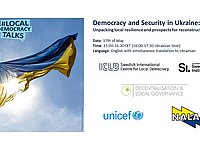
© 2022 DeLoG
|
|
Hosted discussions at local democracy talks with UNICEF and NALAS
As part of ICLD’s Local Democracy Talks, this conference revisited the state of Ukrainian local democracy before the war and discussed how it has contributed to the resilience we are witnessing today. This conference showcased how decentralisation reforms, combined with widespread democratic innovations i.e. digital transformation, in recent years significantly contributed to Ukraine’s resilience. The conference was followed by a discussion round in break out rooms with DeLoG hosting two rooms together with United Nations Children’s Fund (UNICEF) and the Network of Associations of Local Authorities of South-East Europe (NALAS).
|
| |
|
|
|
|
|

© 2022 DeLoG
|
|
Who does What? DeLoG Webinar on Functional Assignments
On May 19th, DeLoG organised a webinar on functional assignments in multilevel governance systems, with examples from Cambodia and Rwanda. The concept of functional assignment (FA) provides a framework for addressing questions about which and how roles and responsibilities should be assigned to different levels of governments or to different administrative tiers. The discussion showed that clearly defined roles and functions across government tiers are essential for a more effective and successful service provision.
|
| |
|
|
| |
|
|
|
|
|
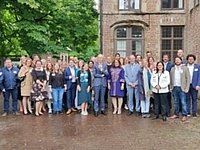
© 2022 DeLoG
|
|
DeLoG-Secretariat Taking Part in the CIB Annual Meeting
On June 8th and 9th, 45 practitioners from local governments and their associations met in Sint-Niklaas, Belgium, hosted by the Association of Flemish Cities and Municipalities (VVSG) and the municipality of Sint-Niklaas for a discussion around the new UCLG-CIB policy paper on development cooperation and local governments. Former co-chair Sebastien Hamel moderated a debate between CIB members and Andrea Ferrari-Bravo, head of sector of local authorities at DG INTPA (European Commission), Tonni Ann Brodber of UN Women, Stefano Marta from the OECD, Christian Luy from the DeLoG Secretariat.
|
| |
|
|
| |
|
|
|
|
|
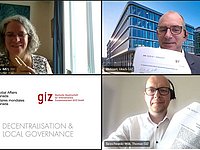
© 2022 DeLoG
|
|
New Financing Agreement Orienting the DeLoG Network Towards Canada's FIAP
On June 15th, Global Affairs Canada and the Gesellschaft für Internationale Zusammenarbeit signed a Special Agreement on Delegated Cooperation to support and strengthen DeLoG. The main goal of this cooperation with GAC is to enhance gender equality and women’s rights within the exchange around decentralisation and local governance (DLG), by including voices of the global south into DeLoG. With this contribution to the DeLoG Secretariat’s core funding, the network will strengthen its diversity and sustainability.
The signing ceremony was attended by GAC - Ioanna Sahas Martin and Larissa Chan, Johan Lilja (ICLD), Ursulla Keller (SDC/DEZA) from DeLoG’s Strategic Support Group Thomas Taraschewski, Ulrich Wehnert, Christian Luy and Susanna Fazio (GIZ and DeLoG Secretariat).
|
| |
|
|
| |
|
|
|
|
|

© 2022 NALAS
|
|
DeLoG in DiaLoGue on Women in Local Governments
Women’s rights to equal political participation at all levels of government is endorsed in the Sustainable Development Goals. We have invited Jelena Janevska, Program Director at NALAS who talked on promoting Gender Equality at local level in South-East Europe.
NALAS has been collecting data on women in local governments in South-East Europe for a long time. To see the results, visit their website.
|
| |
|
|
| |
|
|
|
|
|
News from our Members and Partners
|
|
|
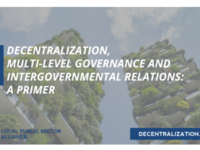
© 2022 LPSA
|
|
LPSA Launches Decentralisation Primer
This Decentralisation Pimer by the Local Public Sector Alliance (LPSA) aims at developing a common vocabulary for the topic of decentralisation and localisation, as well as a common framework for understanding multi-level governance as a critical part of inclusive, sustainable, and efficient development. This primer also offers a useful frame of reference for policy analysts, government officials, sector experts, and civil society actors involved in multilevel public sector reforms worldwide.
|
| |
|
|
| |
|
|
|
|
|
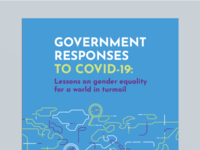
© 2022 UN Women
|
|
UN-Women & UN-Habitat Publish Lessons on Gender Equality for a World in Turmoil
Against the background of the COVID-19 pandemic, this report from UNDP and UN Women showcases what governments can do now to prevent further rollbacks and recover lost ground, while enhancing resilience and preparedness for future shocks. Some of the key lessons and recommendations for a strong gender response entail the support for women’s representation and leadership in executive positions, parliaments, and public administration in all levels of government as well as strengthening feminist movements and women’s rights organisations in their role as early warning system particularly on violence against women and girls. You will also find regional factsheets and the ‘’COVID-19 Global Gender Response Tracker’’.
|
| |
|
|
| |
|
|
|
|
|
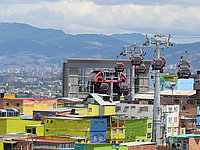
© 2022 UN-Habitat | Hector Bayona
|
|
Launch of the Cities Investment Facility by UNCDF and UN-Habitat
This multi-stakeholder initiative aims at directing a significant amount of capital towards financing inclusive infrastructure projects that are in line with the SDGs. The challenge of project preparation and bankability for urban infrastructure projects in low- and middle-income will be overcome by the Cities Investment Facility through supporting project promoters with the marketing of their projects to a global audience of construction finance providers; advice regarding the ideation, feasibility, development, and financial closure processes; and funding for these processes.
|
| |
|
|
| |
|
|
|
|
|

© 2022 UN-Habitat
|
|
Partners’ Coalition Jointly Present the Multilevel Governance Platform
During the High-Level Political Forum 2022 UN-Habitat, UCLG, GIZ, and BMZ together with partners from around the globe jointly launched a digital platform with knowledge, tools, and events on Multilevel Governance. This platform will provide knowledge and best practices for capacity building, advocacy, and partnership opportunities of national and local governments to strengthen their cooperation, in view of implementing the SDGs, the New Urban Agenda as well as other global commitments. In a multilevel sub-national government context coordinated and collaborative governance mechanisms are required for a sustainable development. This platform wants to support the design of enabling frameworks for an effective and coherent multilevel governance approach.
|
| |
|
|
| |
|
|
|
|
|
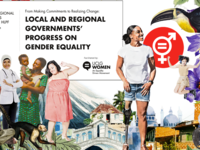
© 2022 UCLG Women
|
|
UCLG Women Launches Report During HLPF 2022
This report by UCLG Women on ‘’Local and Regional Governments’ Progress on Gender Equality’’ during the High-Level Political Forum 2022 follows UCLG’s Feminist Municipal Movement in showing a way forward in how we govern ourselves and how we safeguard our ecological systems and the wellness of people and planet. By showcasing and comprising trends, progress, and best practices in local and regional governments’ promotion of gender equality this report tries to motivate and guide local and regional governments in advancing their action on gender equality. The best practices highlighted in this report also generated some useful recommendations that can guide local and regional governments and all organisations and partners supporting the achievement of SDG 5, achieving gender equality and empowering women and girls.
|
| |
|
|
| |
|
|
|
|
|
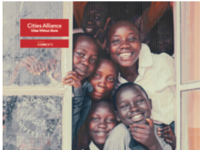
© 2022 Cities Alliance
|
|
Cities Alliance Launched Strategic Plan 2022-2025
Cities Alliance launched its Strategic Plan for 2022-2025 for a transformative urban recovery through an ambitious vision, mission, and objective to contribute to the achievement of the SDGs. This strategic phase will focus on six thematic areas, that are interconnected and reflect the integrated reality of cities and their diverse issues: Slum Upgrading and Housing for the Poor, Basic Services in Cities, Resilience, Cities, and Climate Change Economy and Investments, Women and Gender Equality in Cities, Migration and Cities. With a primary focus on the urban poor and secondary cities this strategic plan will serve Cities Alliance overall mission to ‘’improve the lives of urban populations by delivering innovative and integrated solutions to urban poverty in cities where it matters the most.’’
|
| |
|
|
| |
|
|
|
|
|
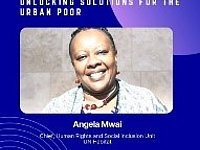
© 2022 UNCDF
|
|
Capital Musings: A UNCDF Podcast
Capital Musings is the official podcast of the UN Capital Development Fund (UNCDF) featuring in-depth conversations with economic development experts, thought-leaders and private sector leaders discussing critical issues at the intersection of development finance, impact investment and the SDGs. This episode focuses on how gender-transformative climate-smart solutions can drive sustainable urban development by investing in financial literacy to unlock solutions for the urban poor.
|
| |
|
|
| |
|
|
|
|
|
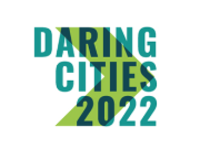
© 2022 Daring Cities
|
|
Daring Cities 2022 Conference
When: 3 - 7 October 2022
Where: Bonn, Germany
Apply by: Registration open
Daring Cities is a virtual, global forum on climate change for urban leaders tackling the climate emergency, especially in the context of the COVID-19 pandemic and was initiated by ICLEI and the Federal City of Bonn. The Daring Cities 2022 conference will offer global, diverse perspectives from compelling urban leaders who have brought about bold climate action as a response to the climate emergency.
|
| |
|
|
| |
|
|
|
|
|
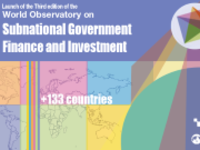
© 2022 SNG-WOFI
|
|
Launch of the Third edition of the SNG-WOFI
When: 24 October 2022
Where: OECD Headquarters, Paris
Apply by: Registration open
Join UCLG and OECD for the launch of the Third Edition of the OECD-UCLG World Observatory on Subnational Government Finance and Investment (SNG-WOFI). This conference will feature presentations and roundtable discussions on the key findings of the SNG-WOFI, covering more than 133 countries across the globe. A special focus will be put on the COVID-19 territorial management and impact on subnational public finances, fiscal frameworks to support public investment across levels of government and the access to innovative financing tools at the subnational level.
|
| |
|
|
| |
|
|
|
|
|
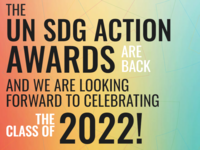
© 2022 UN
|
|
UN SDG Action Awards
When: 27 September 2022
Where: Bonn, Germany
Apply by: Registration open
The SDG Action Awards will showcase initiatives that drive action towards a more sustainable future on a healthy planet, and individuals who are Changemakers that inspire and empower others through their actions. This special event held in Bonn, Germany, during the UN General Assembly and the Global Week to #Act4SDGs in September will highlight all UN SDG Action Campaign channels throughout the year.
|
| |
|
|
| |
|
|
|
|
|
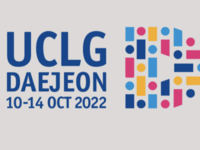
© 2022 UCLG
|
|
2022 UCLG World Congress in Daejeon
When: 10 - 14 October 2022
Where: Daejeon, South Korea
Apply by: Registration open
During the 2022 UCLG World Summit and Congress the municipal movement will gather under the motto “Local and Regional Governments Breaking Through as One”, bringing the local leadership and international actors together to meet a scenario of breakthrough.
|
| |
|
|
| |
|
|
|
|
|
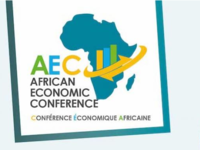
© 2022 AEC
|
|
2022 African Economic Conference
When: 09 - 11 December 2022
Where: Port Louis, Mauritius
Apply by: Register by 15 November 2022
The 2022 African Economic Conference (AEC), jointly organized by the African Development Bank, the Economic Commission for Africa, and the United Nations Development Programme will be held in Port Louis, Mauritius. The theme of this year’s conference is “Supporting climate-smart development in Africa,” with a focus on the following four subthemes: Just energy transitions, Climate change and agriculture, Climate-smart industrialization and Climate-smart governance.
|
| |
|
|
| |
|
|
|
|
|
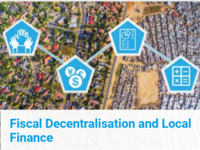
© 2022 The Hague Academy
|
|
Fiscal Decentralisation and Local Finance - The Hague Academy
When: 13 February - 24 February 2023
Where: The Hauge
Apply by: 6 January 2023
|
| |
|
|
| |
|
|
|
|
|

© 2022 FCM
|
|
Free FCM Course on Gender-Responsive Budgeting for Local Governments
When: Self-paced
Where: Online
Apply by: Registration open
|
| |
|
|
| |
|
|
|
|
|

© 2022 The Hague Academy
|
|
Conflict, Rule of Law and Local Security - The Hague Academy
When: 31 October - 11 November 2022
Where: online
Apply by: 23 September 2022
|
| |
|
|
| |
|
|
|
|
|
Knowledge
|
|
|
Fragility ● Post-Conflict Settings ● Migration
|
|
|
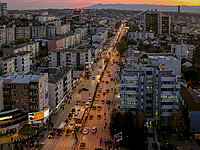
© 2022 GIZ
|
|
Decentralisation Reforms in the Western Balkans
Decentralisation and implementation of the principle of subsidiarity are at the heart of both EU accession negotiations with the Western Balkan countries and their accession-related reforms. As the region's six countries differ in population size, territory, and history, their decentralisation models differ from each other as well. This paper assesses multi-level governance and decentralisation reforms that have been implemented by the Western Balkan countries.
Authors: Stanicek Branislav
Publisher: European Parliament
Publication Date: 2022
Copyright: European Union
|
| |
|
|
| |
|
|
|
|
|

© 2022 GIZ
|
|
Ukraine's Resilience to Russia's Military Invasion in the Context of the Decentralisation Reform
This report analyses the decentralisation reform’s contribution to Ukraine’s resilience in three dimensions - the state’s monopoly of force, public service provision, and legitimacy. It investigates how the decentralisation policy helped shape Ukraine’s resilience ahead of the fully-fledged military attack on the country on 24 February 2022. The report then examines decentralisation’s contribution to the Ukrainian state’s capacity since the start of the war. A few years before Russia’s full-scale invasion of Ukraine, the OECD claimed that, if successful, the ongoing decentralisation reform could enhance Ukraine’s resilience. Some further research tentatively supported this argument.
Authors: Dr. Valentyna Romanova
Publisher: Stefan Batory Foundation
Publication Date: 2022
Copyright: Stefan Batory Foundation
|
| |
|
|
| |
|
|
|
|
|
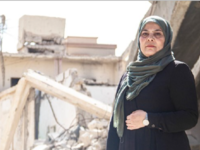
© 2022 UN Women
|
|
Women's Participation in Local Mediation: Lessons from Iraq, Libya, Syria and Yemen
This report aims to illuminate the numerous and diverse ways that women mediate local conflicts across the Middle East and North Africa region. Drawing on case studies from Iraq, Libya, Syria, and Yemen, it maps entry points, techniques, and outcomes of women’s local mediation efforts. It asks: What type of conflicts do women usually mediate? Who are the mediators? How have women mediators negotiated local conflicts? It also discusses key themes: the relationship between local mediation and national peace processes; the role of social norms; what happens outside of negotiations; and the impact of digitalisation on local mediation.
Authors: Jacqueline Parry
Publisher: UN Women
Publication Date: 2022
Copyright: UN Women
|
| |
|
|
| |
|
|
|
|
|
Fiscal Decentralisation ● Local Finance
|
|
|
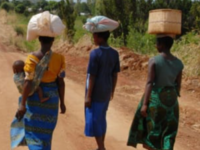
© 2022 Devex
|
|
Is Gender-Responsive Budgeting Creating Equal Opportunities in Malawi?
The 2019 Human Development Report found that gender disparities remain among the most persistent forms of inequality and gender inequality is arguably one of the greatest barriers to human development. The gender-responsive budgeting guidelines will assist in promoting inclusive development. This article focuses on the gender-responsive budgeting project — an ongoing project that the government of Malawi — with support from the European Union, UN Women, and other local NGOs — which has been implementing since 2015. Under the project, local councils are guided to implement budgets and interventions that address the needs of both men and women, in order to reduce the development gender gap in the country.
Authors: Madalitso Wills Kateta
Publisher: DEVEX
Publication Date: 2022
Copyright: DEVEX
|
| |
|
|
| |
|
|
|
|
|
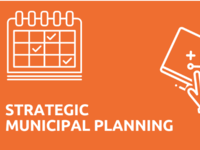
© 2022 Council of Europe
|
|
Strategic Municipal Planning Toolkit of the CEGG
This toolkit is designed to help direct the development policy of local government units over time and support external funding applications. It was designed by the Jerzy Regulski Foundation in Support of Local Democracy. It builds from the premise that the democratic process of designing a strategy creates a unique opportunity for residents, and other stakeholders to participate in the social and economic development of their community. This new Toolkit refers to and builds on policy approaches and methodologies highlighted in other CEGG Toolkits related to Civil Participation, Human Resource Management, Performance Management and Local Financing.
Authors: Cezary Trutkowski, Wojciech Odzimek, Robert Żarkowski
Publisher: Council of Europe
Publication Date: 2022
Copyright: Council of Europe
|
| |
|
|
| |
|
|
|
|
|
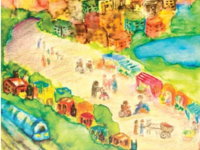
© 2022 UNCDF
|
|
Local Government Finance is Development Finance
One of the factors slowing down progress of the implementation of the SDGs is lack of adequate financing. Effective actions are needed to generate public and private financing that is aligned with the SDGs. The public sector, especially local governments, play a key role in achieving the SDGs by providing basic and essential public goods and services, investing in critical infrastructure and expanding economic opportunities to an ever-growing urban population. The book argues that the current arrangements are not fit for purpose given the triple challenges of productive livelihoods, urbanisation, and climate change and proposes reforms to the financial architecture and investment agenda.
Authors: David Jackson (ed)
Publisher: UNCDF
Publication Date: 2022
Copyright: UNCDF
|
| |
|
|
| |
|
|
|
|
|
2030 Agenda ● Localising the SDGs
|
|
|
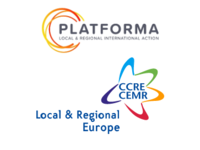
© 2022 CEMR & Platforma
|
|
Study: European Territories Localise the SDGs
This study is based on a joint survey conducted by CEMR, PLATFORMA and UCLG, which coordinated with all its regional sections to produce a parallel global report. The purpose was to collect the most recent information on how and to what extent LRGAs and networks have been involved in the localisation of the SDGs, both in Europe and with their global peers, and during the COVID-19 pandemic. This year’s survey therefore included questions on the SDGs’ implementation since 2015 and the impact of the COVID-19 crisis. In the last two sections, there were also additional questions regarding Voluntary Subnational Reviews (VSR) and decentralised cooperation.
Authors: CEMR & PLATFORMA
Publisher: CEMR & PLATFORMA
Publication Date: 2022
Copyright: CEMR & PLATFORMA
|
| |
|
|
| |
|
|
|
|
|
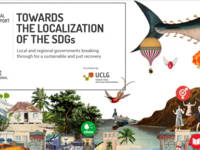
© 2022 UCLG
|
|
Towards the Localisation of the SDGs
The 6th Local and Regional Government’s Report to the 2022 HLPF includes evidence grounded in the experiences shared through 220 responses received to the survey from local and regional governments and their associations from all world regions. A thorough analysis of the existing 130+ VLRs and 26 VSRs has also been conducted as the basis for this report, as well as of the newly produced Country Profiles for SDG localisation and the 44 VNRs expected for 2022.
Authors: Edgardo Bilsky, Anna Calvete Moreno, Ainara Fernández, Cécile Roth, Camille Tallon (ed)
Publisher: United Cities and Local Governments.
Publication Date: 2022
Copyright: United Cities and Local Governments
|
| |
|
|
| |
|
|
|
|
|
Urban and Territorial Governance
|
|
|
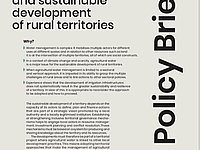
© 2022 AFD
|
|
Including Agricultural Water Management in the Governance and Sustainable Development of Rural Territories
This Policy Brief about water management in rural territories focuses on the Why and the How of implementation. The sustainable development of a territory depends on the capacity of its actors to define, plan, and finance actions that are part of a strategic vision promoted by a local authority and a locally legitimised institution. Establishing or strengthening inclusive territorial governance mechanisms helps to engage local actors in resource management, investment planning, and conflict resolution. These mechanisms must be based on a system for producing and sharing knowledge about the territory and its resources. The developments must therefore be part of a territorial project where agricultural water is linked to other local development priorities.
Authors: Mathieu Boche (Afd), Julien Burte (Cirad), Meriem Jouini (Funceme)
Publisher: Agence Francaise de Developpment (AFD)
Publication Date: 2022
Copyright: Agence Francaise de Developpment (AFD)
|
| |
|
|
| |
|
|
|
|
|
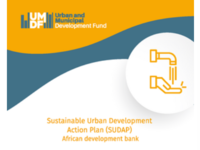
© 2022 Cities Alliance
|
|
Paper: Scaling up Essential Services in African Cities
This report is part of a paper series within AfDB's Sustainable Urban Development Action Plan 2021-2025 and focuses on the urbanisation of African regions. Poorly managed urban growth has resulted in the proliferation of slums, informal settlements, urban poverty, and rising inequality. This has hindered the provision of essential services that are precursors to inclusive and sustainable development, and citizens' health and well-being. This report provides recommendations based on good practice examples and transformative approaches to infrastructure development in African cities that have contributed to positive outcomes.
Authors: Anandita Bajpai, Samantha Stratton-Short, and Ibidun Adelekan
Publisher: African Development Bank (AfDB), Cities Alliance, and UNOPS
Publication Date: 2022
Copyright: African Development Bank (AfDB), Cities Alliance, and UNOPS
|
| |
|
|
| |
|
|
|
|
|
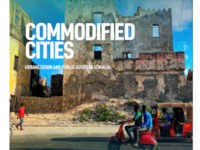
© 2022 Rift Valley Institute
|
|
Commodified Cities: Urbanisation and Public Goods in Somalia
Urbanisation in the Somali territories is transforming Somali society in multiple and profound ways, with the growth of urban centres and networks paralleled by new patterns of accumulation, investment, redistribution, inclusion, and exclusion. This paper analysis how these mechanisms play out in the cases of, respectively, urban land, water, and mobility. In particular, the analysis centres on the commodification of these services, the role of self-regulation, and the potential impacts on socioeconomic and spatial inequality.
Authors: Tobias Hagmann, Abdi N. Mohamed, Abdirahman E. Ali, Jamal Mohamed, Mahad Wasuge, Mohamed H. Ibrahim, Sahra Koshin, Yassmin Mohamed and Hannah Stogdon
Publisher: Rift Valley Institute
Publication Date: 2020
Copyright: Rift Valley Institute
|
| |
|
|
| |
|
|
|
|
|
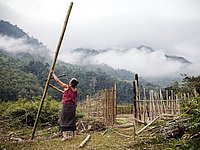
© 2022 GIZ
|
|
Exposure: Are the Fate of Nature and Women the Same?
Climate change is the crisis of today, and women are impacted significantly. The climate crisis does not affect everyone equally and it is experienced differently by individuals according to their gender. Therefore, today, gender equality is an important tool for sustainable development and combating climate change. The ecofeminist approach, which emerged from the intersection between oppression against women and nature, aims to build a more egalitarian, fair, and livable world for all by addressing women's and environmental issues together.
Authors: Didem Mina Kara, Merve Elibirlik, Photos: İbrahim Aysündü, Tarık Bozbay, Mustafa Kocakoç, Yılmaz Kesici, Ali Mermertaş, Seyit Ali Geçici, Erdal Türkoğlu, Levent Kulu, Soner Şimşek
Publisher: UNDP Turkiye
Publication Date: 2022
Copyright: UNDP Turkiye
|
| |
|
|
| |
|
|
|
|
|
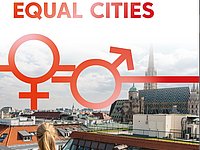
© 2022 URBACT
|
|
URBACT: Gender Equal Cities Report 2022
This URBACT report is designed to inform and inspire policy makers to take action in their cities. Gender equality is a cross-cutting issue which touches on many aspects of municipalities’ work. To make the information as accessible as possible, the content is broken into seven key themes and sub-themes. These are key areas where cities can work towards gender equality. They reflect regional and global priorities as outlined in the Council of European Municipalities and Regions’ Charter for Equality, as well as some of the 12 areas of the Urban Agenda for the European Union and targets included in Sustainable Development Goals 5 and 11.
Authors: Dr. Mary Dellenbaugh-losse, Bianca C. Dreyer
Publisher: URBACT
Publication Date: 2022
Copyright: URBACT
|
| |
|
|
| |
|
|
|
|
|
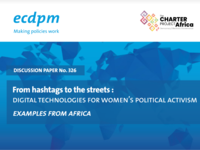
© 2022 ECDPM
|
|
From Hashtags to the Streets: Digital Technologies for Women's Political Activism
This ECDPM paper discusses past struggles for independence to today’s protests against normalised violence, women in Africa have asserted their leadership in social and political movements. Yet even when praised for their activism, they remain excluded from decision-making. Digital technologies offer clear opportunities for women-led political movements in Africa, but they also bring risks and limitations that make tapping the potential more difficult. Regional institutions can play a proactive role by establishing policies and standards that empower women politically.
Authors: Maëlle Salzinger, Lidet Tadesse and Martin Ronceray
Publisher: ECDPM
Publication Date: 2022
Copyright: ECDPM
|
| |
|
|
| |
|
|
|
|
| |

|
|
|
| |
|
|
| |
For access to many more inspiring publications on
1. DLG in Contexts of Fragility, Migration and Post-Conflict Settings,
2. Fiscal Decentralisation and Local Finance,
3. Localising the 2030 Agenda or
4. Urban and Territorial Governance
make sure to visit the regularly updated "Knowledge Section" of our DeLoG Website!
|
|
|



































